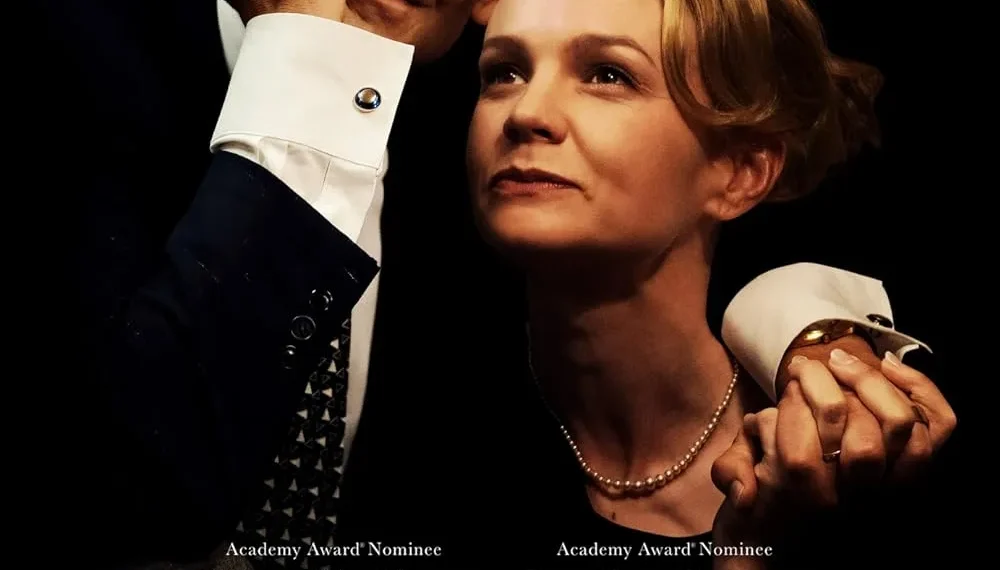Featuring: Bradley Cooper, Carey Mulligan, Matt Bomer, Maya Hawke, Sarah Silverman, Michael Urie, Brian Klugman
Genre: Biography, Drama, Music, Romance
Director: Bradley Cooper
In Cinemas: 1st December 2023
Streaming on Netflix: 20th December 2023
In his second film as director, Bradley Cooper depicts legendary American conductor and composer Leonard Bernstein on a significant scale from his early beginnings until his later stages in life. It also focuses on his complicated relationship with his wife, Felicia Montealegre, played by Carey Mulligan. There are many conflicting issues with Maestro, and some parts succeed perfectly and then fall short of having an interest and impact on the audience. It is consistent with high and low moments linked to the high expectations for this movie, which was passionately constructed around awards season about one of the most important conductors of Bernstein’s time. Cooper visually displays beautiful imagery around different moments from Bernstein’s chaotic life. There are always these magnificent and admirable intentions with his use of music and slow character development on the eventual transformation around his self-representation of prestigiousness. The film opens and establishes the relationship between Leonard (Cooper) and Felicia (Mulligan) and how they first met, centred around Bernstein’s rise to becoming a talented musical genius. He is depicted as having a larger-than-life persona with a cultural force of nature engrained into his character. Compared to those verified people involved in the world of classical music during the point where he is now an icon in the film during the mid-century.

As a director, Bradley Cooper goes to extreme lengths and creates and uses a filmmaking style by trying to make it look like Maestro was made in the 1940s and 1950s. As the movie progresses, it adapts the textures and tones of those particular eras, with the strikingly high contrast of black and white, in addition to using technicolour when we arrive into the 1970s, all while using the academic framing ratio for a considerable amount. The film produces something that technically looks spectacular, and the evidence is there when considering the music and the cinematography by Matthew Libatique or the costume and production design, which is always prerogative and immersive. There is a beautiful shot of Carey Mulligan as she gets off a bus and walks down the street at night under these street lamps where she goes to a party where she will eventually meet Leonard Bernstein for the first time, and this scene alone absolutely looks like it was made back then. The level of care and detail placed into every scene is breathtaking when observing camera angles and pacing, and it puts it into perspective that the movie is impressively well-made by Cooper and is gorgeous to watch. Nothing seems out of place or disorientated, and it consistently exhibits that level of perfection that never appears to deteriorate.
Throughout the movie and early on, we learn that Bernstein is secretly living his life as a gay man during the 1940s when homosexuality was not accepted by society, and it is handled almost heartbreakingly harrowing In that Bernstein (Cooper) has to constantly fabricate himself into something that is not his accurate sexual and personal representation. He is now considered a legendary figure in the music world while playing pretend in his private life as his wife, Felicia (Mulligan), stands in his shadow. Carey Mulligan gives an honest and mesmerizing account of her life that will undoubtedly earn her an Oscar nomination. Maestro is a beautifully crafted feature biopic that gets distracted when zoning in and giving particular attention to serving and majestically presenting the film. Unfortunately, the consequences of doing so become unfavourable to the other aspects of the movie; there is a constant back and forth between different periods, and it mistakenly and ultimately does not create a narrow focus on the characters. As a whole package, the film feels overambitious when trying to be consistent and overloading in creating something unique.
Overall: 5.5/10


















